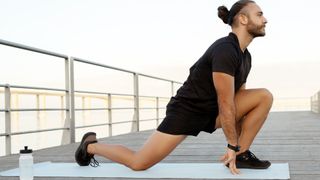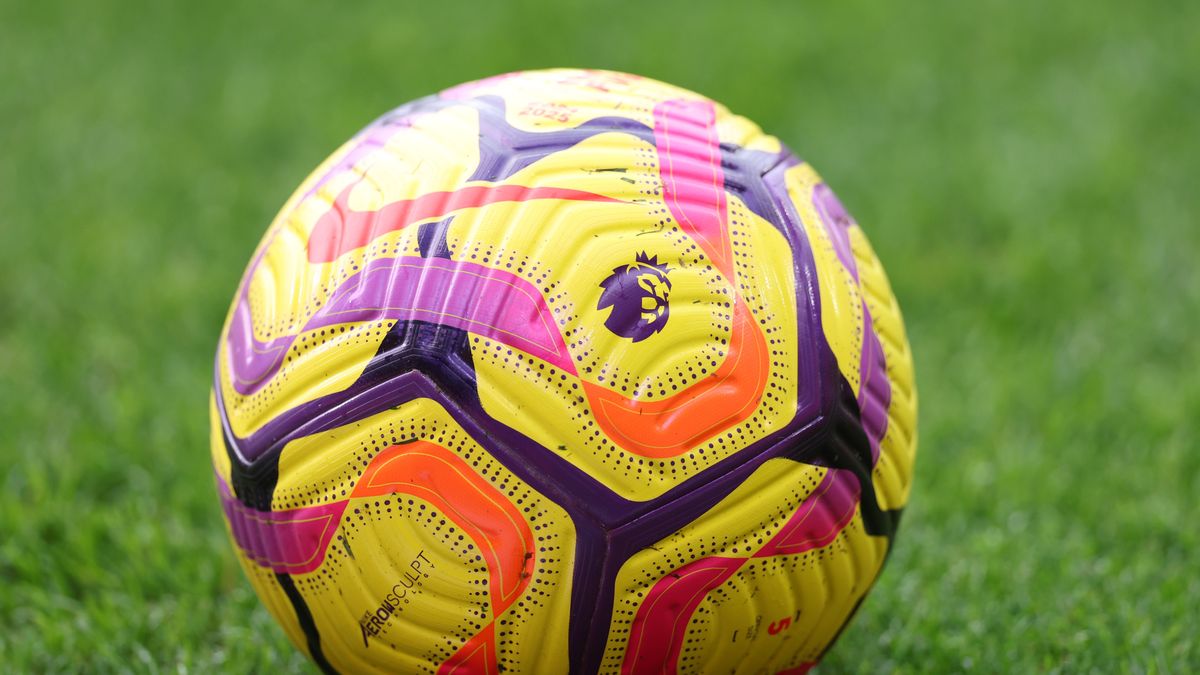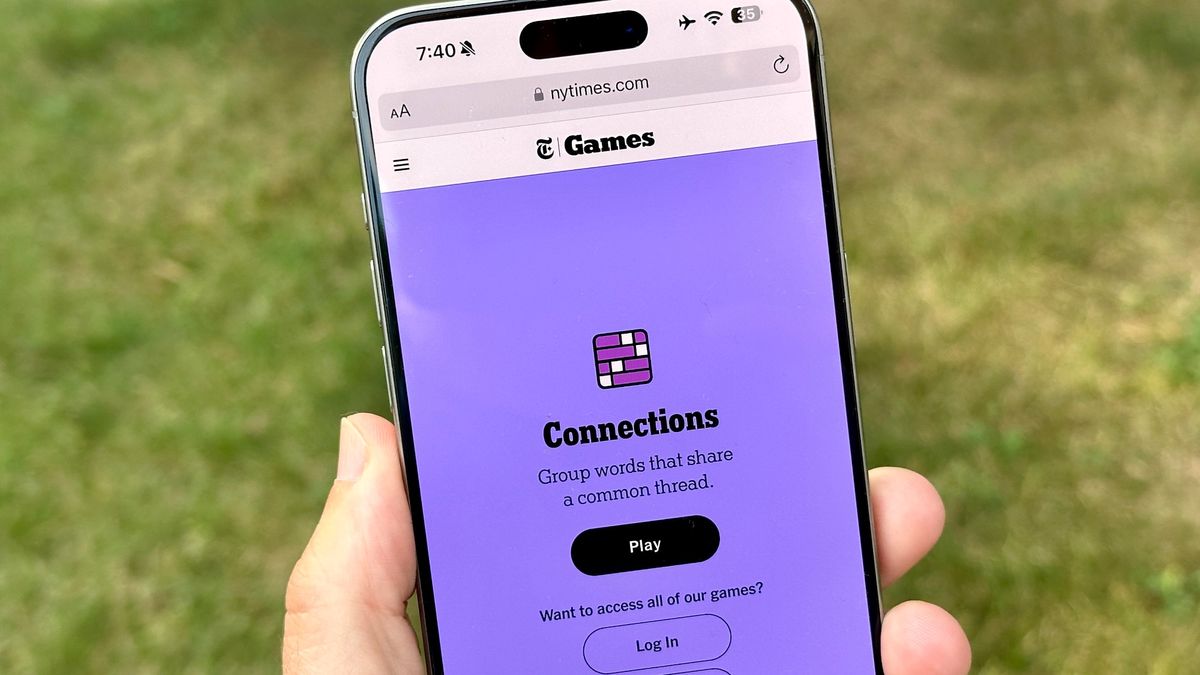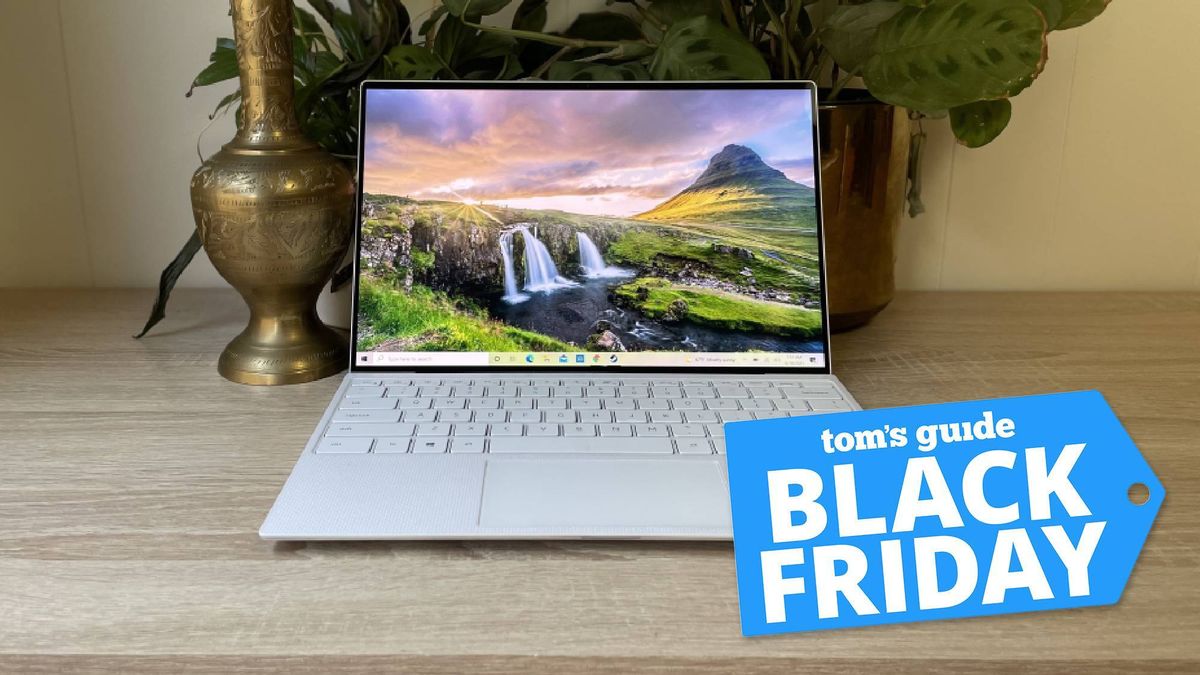I add this one exercise to my stretching routine whenever I need to loosen tight quads and hips. A variation of runner’s lunge, this quad stretch against a wall is the perfect way to release lower body tension without any equipment, and just using one of the best yoga mats for some cushioning.
If you suffer from knee pain, this move might not be for you, but you can bolster your back knee with a cushion or block to add support if you need it. The wall-supported runner’s lunge can be static and held for 30 to 60 seconds or you could add some gentle movement back and forth.
Here’s how to do it, and the benefits.
What is the wall-supported runner’s lunge quad stretch?
You just need a wall and a yoga mat, plus any support — like a cushion or soft yoga block — to support your back knee if you need it or don’t have a mat. It can feel quite intense, but runners in particular can benefit from releasing tight hips and quads post-run to aid recovery.
How to do the wall-supported runner’s lunge quad stretch
- Here’s how to do this move step-by-step:
- Start in a kneeling position with a wall behind you. If you’re using one, position a mat lengthways close to the wall
- Position your right foot flat against the wall with the top of the foot pressed into the wall and step your left leg forward into a low lunge position
- Edge your left foot forward until you feel a deep stretch through the left glute, right quad and right hip flexor
- Hold for at least 30 seconds, then switch sides.
You can rest your hands gently above the knee of the leading leg or on the floor for support. Try to keep a tall torso without rounding your back or hunching your shoulders, as you would during a regular lunge. Think proud chest.
You might not be able to position your back leg against the wall to begin with, so ease yourself in, starting further away from the wall, and then backing closer to the wall until your back leg is flush with it as you find more space in your muscles and they begin to relax. Over time, you may find your calf resting against the wall!
I also recommend adding some gentle movement by slowly rocking the front knee back and forth to help ease things up. Try to keep the front heel planted at all times as this can also help tight ankles.
Verdict
The supported runner's lunge variation is helpful if you struggle to keep your back leg lifted without support or you can’t reach behind to hold your back foot when attempting a quad stretch from the runner's lunge (low lunge) position.
The unilateral stretch helps dial into one side of the body at a time, so you might notice one side is trickier than the other — this is normal and it’s crucial that you meet your body where it is rather than forcing your joints or muscles too far.
I see the quads getting neglected all the time but considering how large and powerful this muscle group is, they need more attention. The hip flexors, lower back, glutes, quads, hamstrings and groin muscles all contribute toward lower body mobility, posture, and spinal support and help you move properly.
I see the quads getting neglected all the time but considering how large and powerful this muscle group is, they need more attention.
When performed regularly, this type of stretch helps build flexibility in the muscles that help propel the body during running, walking and marching.
For best results, perform this exercise several times a week, especially after lower body workouts. It may take several months to notice improvements, so be patient. You should feel a stretch through the hip flexor and quad of the back leg without knee pain.
If you feel the hip flexor stretch dominating, adopt a shorter-stance low lunge; this may help drive your front knee forward and improve the range of motion in the front knee and ankle.
More from Tom's Guide
- Develop lower body flexibility and build ankle strength with this one bodyweight exercise
- No push-ups? Try the dolphin press to strengthen your chest, core and shoulders instead
- These 5 moves promise to release tension in your back and hips — here’s what happened when I tried them





















 English (US) ·
English (US) ·